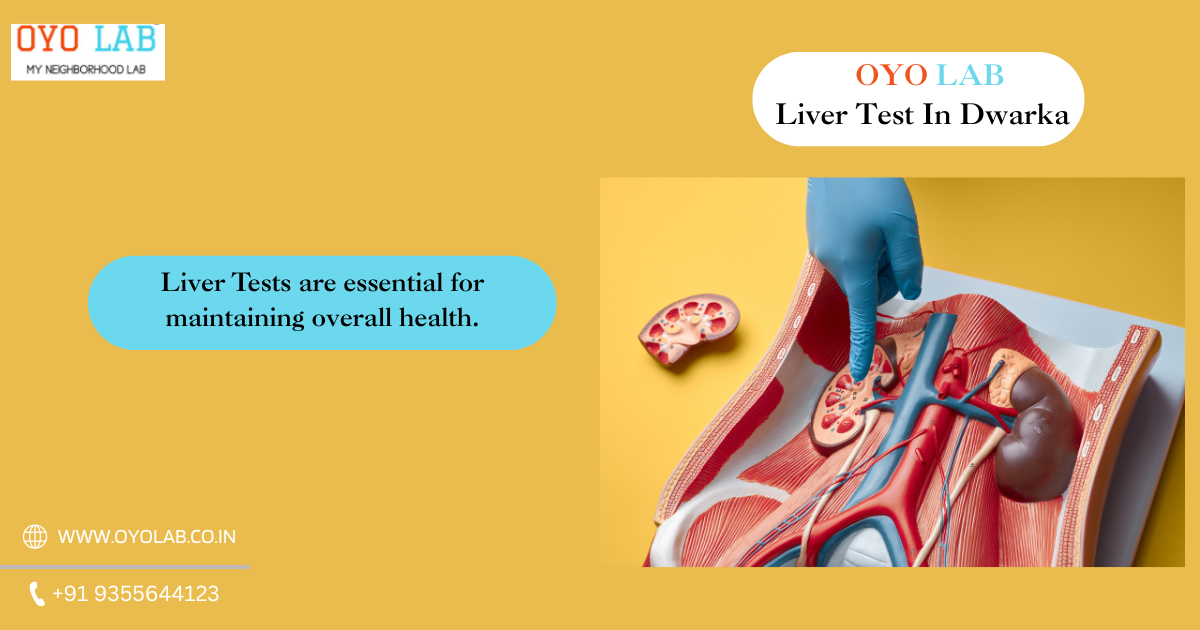
Liver Test In Dwarka
By Shilpa | March 31, 2025
What Is Liver Test ?
A Liver Test , also known as a liver function test (LFT), is a group of blood tests used to assess the health and function of the liver. These tests measure the levels of enzymes, proteins, and other substances in the blood that indicate how well the liver is working.
Common Liver Tests Include:
-
Alanine Aminotransferase (ALT) – Detects liver damage.
-
Aspartate Aminotransferase (AST) – Indicates liver or muscle damage.
-
Alkaline Phosphatase (ALP) – Checks for bile duct problems.
-
Bilirubin – Measures liver’s ability to clear waste.
-
Albumin & Total Protein – Evaluates liver's protein production.
-
Gamma-Glutamyl Transferase (GGT) – Identifies bile duct issues and liver damage.
Why is a Liver Test Done?
-
To check for liver diseases (such as hepatitis, fatty liver, or cirrhosis).
-
To monitor liver function in people with existing liver conditions.
-
To assess the effects of medications on the liver.
-
To investigate symptoms like jaundice, dark urine, or abdominal pain.
Importance Of Liver Test
The liver plays a vital role in digestion, detoxification, and metabolism, so monitoring its function is essential for overall well-being.
Key Reasons Why Liver Tests Are Important:
-
Early Detection of Liver Diseases
-
Helps diagnose conditions like hepatitis, fatty liver disease, cirrhosis, and liver infections before they become severe.
-
-
Monitoring Liver Function
-
Checks how well the liver is performing its functions, such as producing proteins, processing nutrients, and removing toxins from the body.
-
-
Evaluating Effects of Medications
-
Certain medications can affect liver health. Regular liver tests help monitor any potential liver damage caused by long-term medication use.
-
-
Assessing Liver Damage
-
Identifies liver inflammation or damage caused by alcohol consumption, viral infections, or other health conditions.
-
Benefits Of Liver Test
A liver test, also known as a liver function test (LFT), provides valuable insights into the health and function of the liver. Since the liver plays a crucial role in digestion, detoxification, and metabolism, regular testing helps in early detection and prevention of serious health issues.
1. Assessing Alcohol and Toxin-Related Damage
-
Helps detect liver damage caused by excessive alcohol consumption or exposure to harmful toxins.
2. Guiding Treatment Decisions
-
Provides doctors with important data to develop effective treatment plans and monitor the progress of liver disease management.
3. Detecting Bile Duct Issues
-
Identifies blockages in the bile ducts that can lead to digestive problems and jaundice.